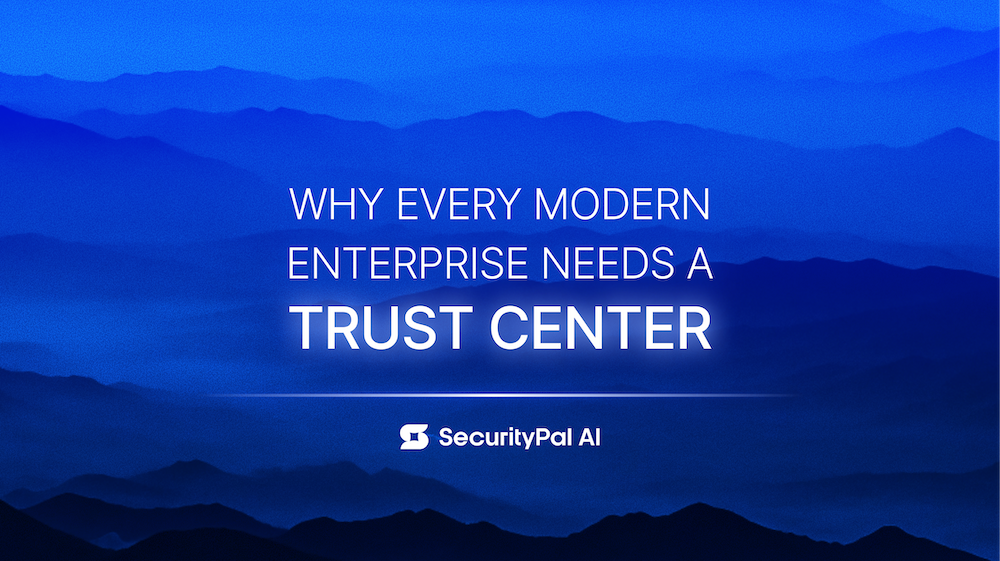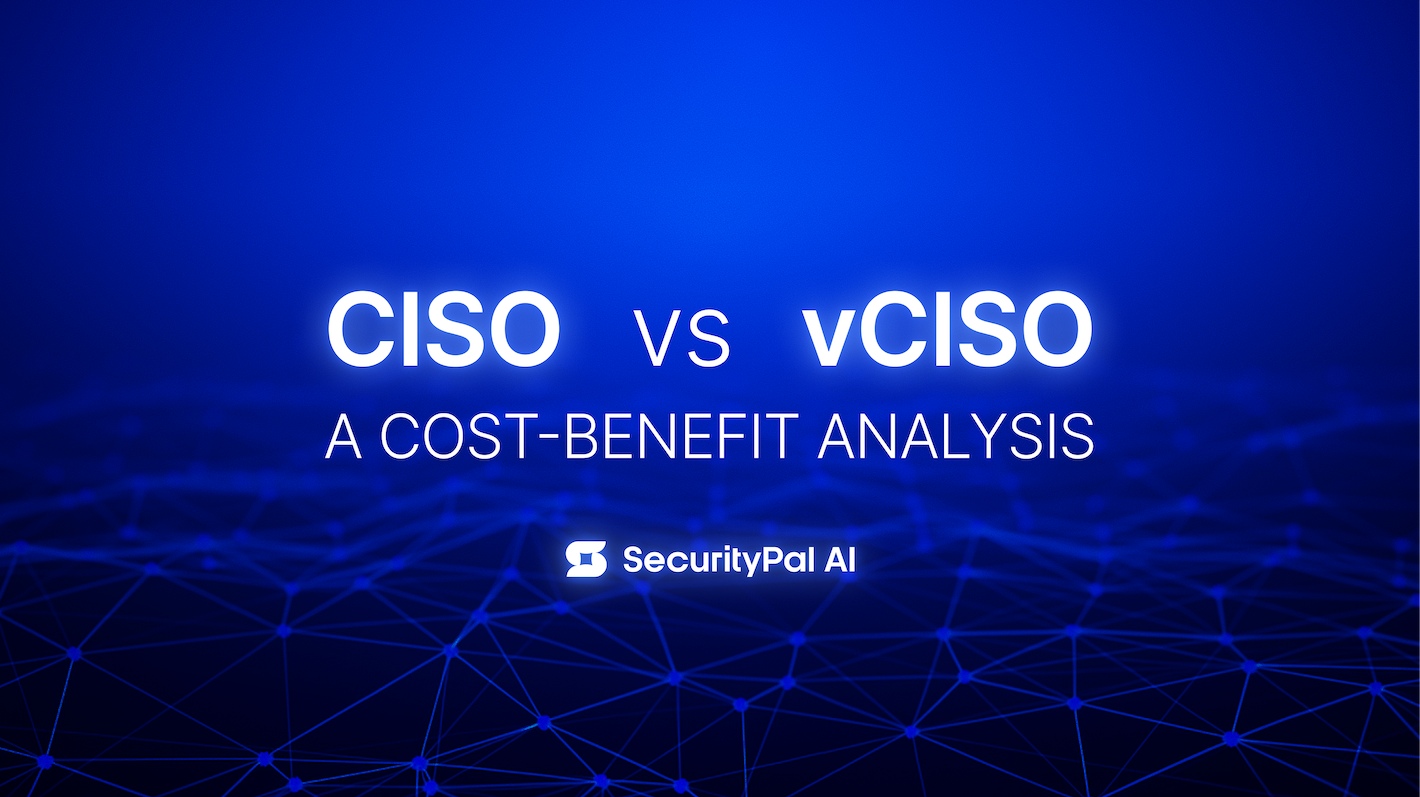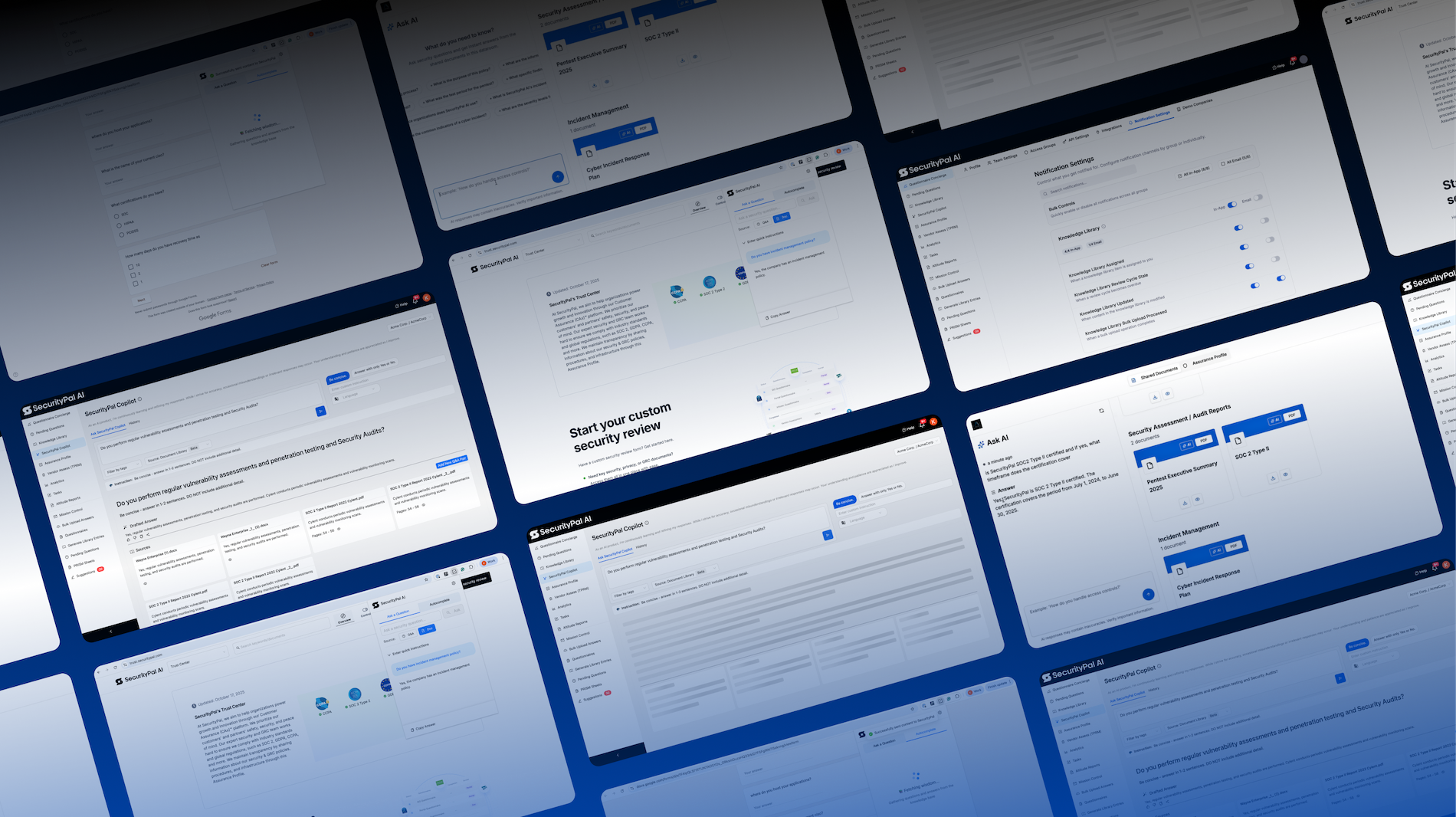Trust is the New Currency: Why Every Modern Enterprise Needs a Trust Center
Trust is the currency that governs modern enterprise relationships.

In B2B transactions, companies exchange more than just money. At various points in time, attention, data, loyalty, and even time have all served as forms of currency.
But today? Trust is the currency that governs modern enterprise relationships.
Whether you're securing a deal, choosing a vendor, or renewing a long-term contract, trust isn't a "nice-to-have.” It's the foundation of B2B relationships and a critical step in closing enterprise deals. And like any currency, trust must be earned, protected, and communicated.
Let’s explore what trust really means in B2B relationships, why it's make-or-break for modern enterprises, and how a dedicated Trust Center helps you scale that trust in a way that’s visible, reliable, and effective.
The Foundations of Trust in Modern B2B Relationships
Trust is no longer assumed — it must be demonstrated.
Gone are the days of “move fast, verify later.” With AI-driven threats and an explosion of sensitive data exchanged between vendors and customers, security, GRC, and transparency are now essential to every B2B transaction.
And it’s not just about having the right documentation — it’s about how you present it. The security review process is often your customer’s first glimpse into your operations, culture, and credibility. If you move with clarity and speed, you’re building trust and customer assurance from the very first interaction.
What Today’s Buyers Expect
Modern enterprise buyers, especially those with security and compliance responsibilities, expect:
- Transparency – Keeping your security practices behind closed doors doesn’t protect you — it raises red flags.
- Predictability – Buyers want to understand exactly how you handle data and risk, from onboarding through renewal.
- Accountability – If there are known risks, buyers expect you to acknowledge them — and show how you’re addressing them.
- Responsiveness – Security reviews are an extension of customer experience. A seamless process signals a well-run company.
Most importantly, trust isn’t static — it’s built over time, but it can be lost in a moment.
The 6 Core Pillars of Building Trust
So how do you actively build trust with customers? Start by investing in these six pillars:
- Reliability – Can your systems and teams be counted on, even under pressure?
- Competence – Do you deliver what you promise, on time and at the expected quality?
- Integrity – Are you honest about your practices, policies, and limitations?
- Purpose – Are your values aligned with those of your customers and stakeholders?
- Reputation – What do your current customers and partners say about you?
- Security – Do you handle sensitive data with the highest standards of care?
Each of these pillars reinforces the others. Together, they form a system of trust your buyers can feel confident in.
Why Trust is Make-or-Break in B2B
Enterprise relationships aren’t just high-value — they’re high-risk. Sales cycles are long, involve multiple stakeholders, and depend on mutual confidence.
And when that trust is broken, the fallout is real:
- A missed policy update or surprise change can jeopardize your customer’s compliance status.
- A gap in documentation can hold up procurement for weeks.
- A perceived lack of transparency can end a partnership before it begins.
In high-stakes sales, trust accelerates deals. Lack of trust kills momentum.
The Transactional Nature of Trust
While trust is built on values, it's proven through actions. Every policy, interaction, and request you fulfill contributes to your trust profile.
When a customer requests your SOC 2 report or clarification on your data retention policy, they’re not just gathering information — they’re asking, “Can we trust you?”
The cost of low trust:
- Slower sales cycles
- Higher volume of questionnaires
- Decreased close rates
- Increased vendor churn
The payoff of high trust:
- Shorter reviews
- Faster procurement
- Higher renewal rates
- Increased upsell potential
What Is a Trust Center? (And Why You Need One Now)
A Trust Center is a centralized, customer-facing portal that communicates your security, compliance, and trust posture — in real time.
It gives your customers instant access to the information they care about most, without long email chains or scattered documentation.
A strong Trust Center typically includes:
- SOC 2, ISO 27001, and other compliance certifications
- Penetration test summaries
- Product security FAQs
- Responsible disclosure policies
- Incident response procedures
- Real-time trust updates and policy changes
The best Trust Centers go beyond documentation. They send a message: “We take your trust seriously — and we’ve built the infrastructure to prove it.”
Does a Trust Center Replace Security Questionnaires?
A Trust Center doesn’t completely replace security questionnaires — but it can dramatically reduce their frequency, complexity, and turnaround time.
Many procurement teams still require formal security questionnaires. But with a Trust Center:
- Customers get immediate answers to common questions.
- Your team avoids repetitive back-and-forth.
- The process becomes smoother, faster, and more scalable.
When integrated into SecurityPal's Assurance Management Platform (AMP) your Trust Center becomes even more powerful — combining proactive transparency with streamlined security questionnaire management.
Why Modern Enterprises Can’t Afford to Delay
Buyers are moving fast. They expect instant answers, not weeks of email follow-ups. Meanwhile, your competitors are already investing in public-facing Trust Centers — signaling maturity, readiness, and confidence.
In today’s environment, transparency isn’t a differentiator — it’s table stakes. And trust? It’s not just a value. It’s your go-to-market advantage.
Make Trust Your Competitive Advantage
Trust isn’t a soft metric. It drives real business outcomes — from deal velocity to renewal rates.
A well-executed Trust Center helps you:
- Accelerate security reviews
- Reduce security questionnaire volume
- Limit repetitive, manual work
- Build long-term customer confidence
- Signal maturity and readiness to prospects
Ready to earn trust at scale? See how SecurityPal’s Trust Center can help you accelerate security reviews, reduce friction, and make trust your competitive advantage.













